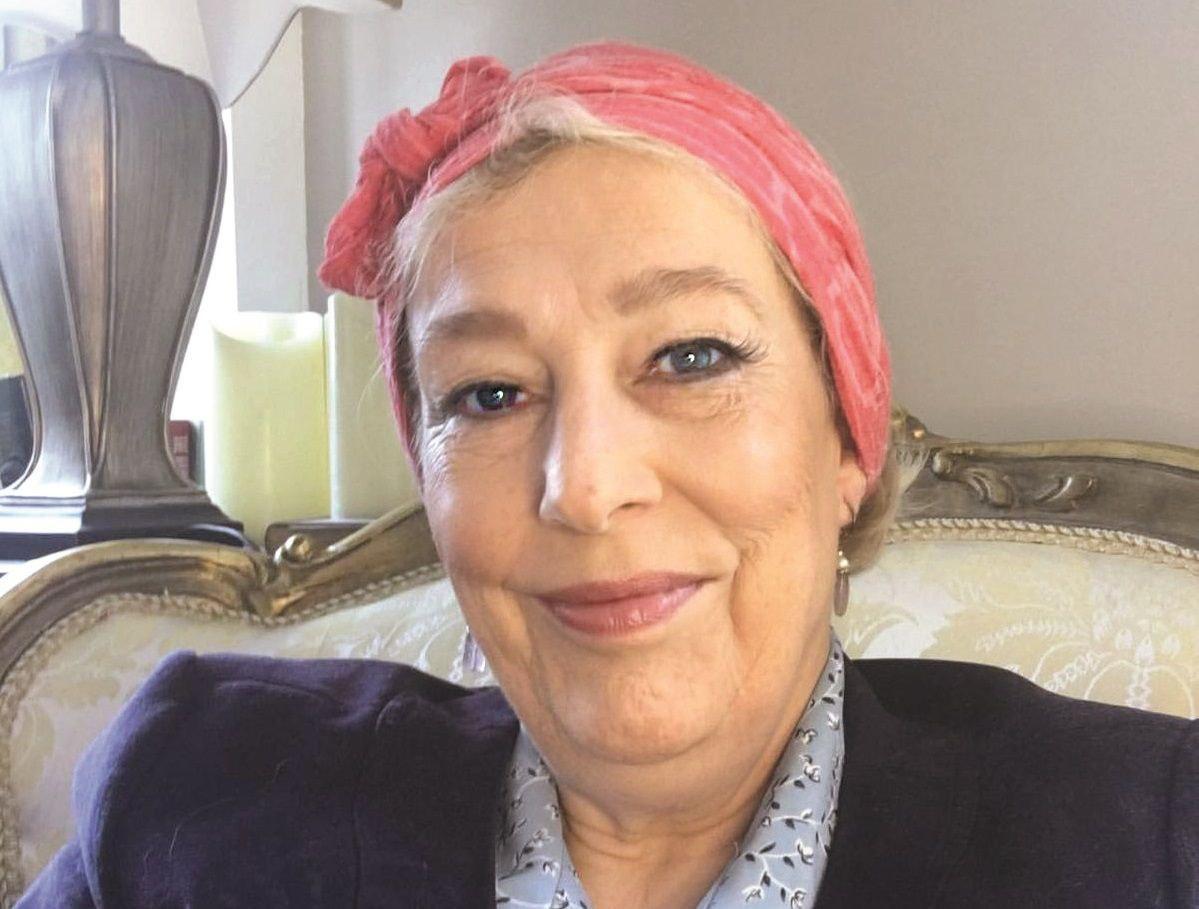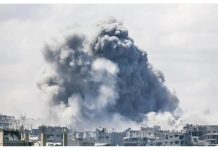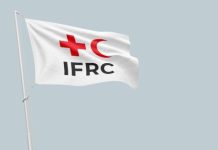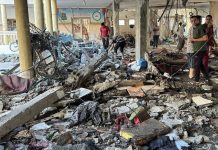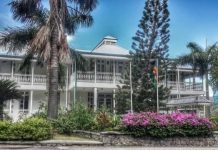By Abdulrahman Al-Bakkoush
Africa-Press – Seychelles. In an exclusive interview conducted by Africa Press with Scottish journalist and political and humanitarian activist Yvonne Ridley, Secretary-General of the European Muslim League, she affirmed that she does not fear criticism, but rather what keeps her awake at night is the injustice suffered by the Palestinian people. She stressed that the most practical thing she can do now is to board the ship Omar Al-Mukhtar and take part in the Freedom Flotilla campaign to break the siege on Gaza and deliver humanitarian aid.
Ridley emphasized that what is happening in Gaza today resembles “a Holocaust unfolding before the eyes of the world,” considering Israel’s actions to be similar to those of “the Third Reich in its final days when it went mad.” She added that the Israeli army is now out of control and that the international community or any military force must restrain it, while at the same time pointing out that although she is a “peace activist,” she believes deterrence has become an urgent necessity.
She also explained that the true success of this mission would be when the United Nations intervenes, declares the escort of the ships, and establishes a permanent humanitarian corridor allowing more maritime convoys to reach Gaza. Ridley sent a powerful message to the international community, saying: “Do something, do not sit back and watch. ‘Never again’ is not tomorrow, it is today.”
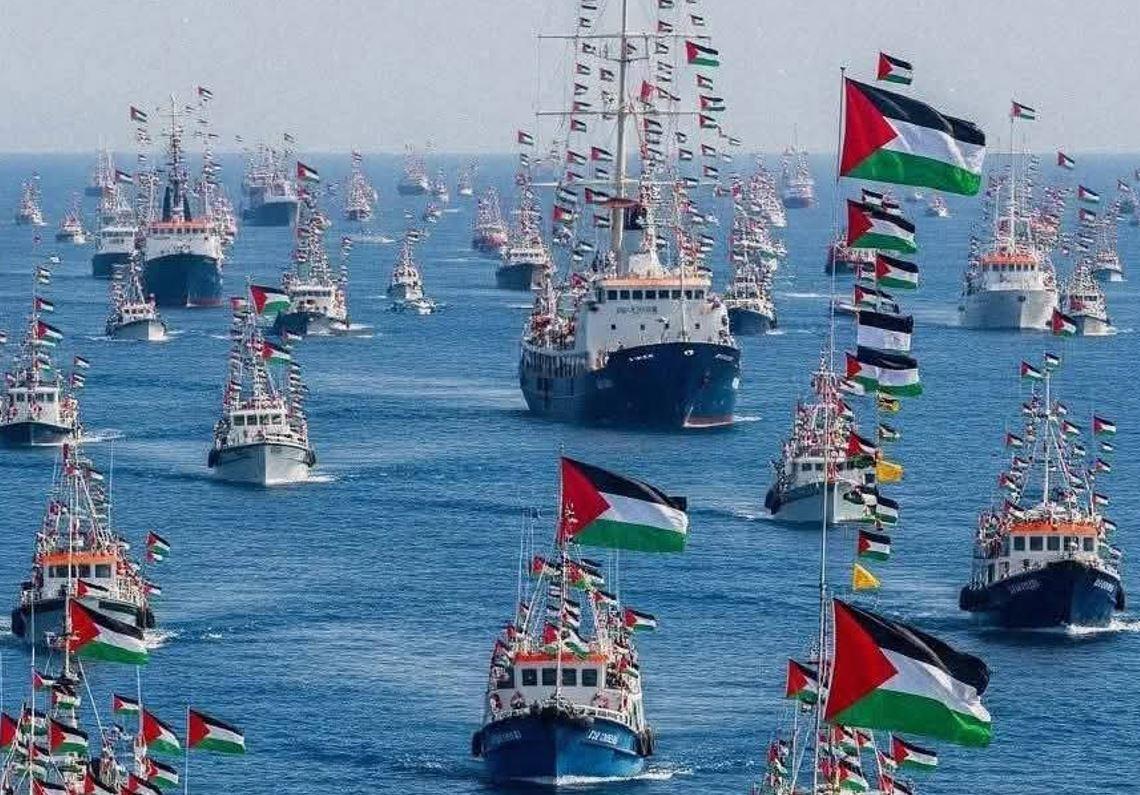
What personally motivated you to join the ship Omar Al-Mukhtar and be among its members of local and foreign activists and journalists?
I have supported Palestine since I was a schoolgirl, more than fifty years ago, and I was also on the first boat to break the siege in 2008 aboard Al-Karama. And here we are again, setting off from Tripoli after all these years, while the problems in Gaza have only become worse, not better. When we were given the opportunity to go on board the ship Omar Al-Mukhtar to join the Freedom Flotilla that set off from Tunisia, we did not hesitate.
How are you preparing for the challenge of reaching Gaza amid political and security restrictions?
This is a very difficult question, because the first time we sailed to Gaza, we broke the siege. People thought the siege only began in 2005, but it did not. We were the first boat to reach Gaza in more than 41 years, and that is why more than 100,000 people came out to see us. They could not believe we would actually make it and only wanted to see who these Westerners were who had come. Even from the early days, the goal of the flotilla was not merely to deliver aid, but to open a humanitarian corridor in the Mediterranean Sea leading to the port of Gaza and to send a message to the world: if we could do it, why can’t you?
How do you assess the stance of world leaders on the Palestinian cause?
In fact, Arab and African leaders had a great opportunity to unite in Doha a few days ago, where more than 50 leaders from the Organization of Islamic Cooperation attended, and they agreed that the Israeli state is a rogue state. The United Nations has just issued a new report confirming that Israel is guilty on four out of five counts that define genocide. Yet no leader was able to impose an appropriate sanction or legislate to bring justice to the Palestinians. I am a peace activist, and I believe we need military intervention, because the Israeli army is out of control.
How do you coordinate with other activists and organizations participating in this mission?
We use our phones to stay in contact with people in Gaza and around the world — politicians, businessmen, and those interested in humanitarian issues. We receive information and news from all over Gaza, and this is extremely sad. Every morning we are afraid to open the phone and see a real tragedy, such as civilians and children being killed.
I spend the first hour of the morning browsing social media, and another hour responding and communicating with politicians and humanitarian initiatives, whether by signing petitions or joining marches in support of Gaza.
What risks might you face along the way and during this journey?
Everything I do involves risks, and as a journalist covering Middle Eastern news, I know how dangerous it is. But I have white privilege that I can use in favor of the mission. I look at Palestinian journalists and admire their courage; they tell stories about their daily lives in the middle of war, and that is what I want to experience myself. I have visited Gaza twice, and my greatest fear is how what I will see there will affect my perception of humanitarian reality, because the scale of the humanitarian tragedy is not fully shown in the media.
How do you respond to those who consider this initiative a political provocation rather than a humanitarian one?
What keeps me awake is injustice, not their criticism. I will do everything I can to help the people of Gaza. At the moment, the most practical thing is to get on the boat, break the siege, and deliver aid. As for the critics, if you cannot wish us well, then get out of the way and let us pass without stopping.
How do you compare the current situation with tragic humanitarian events throughout history?
If we go back to 1943 or 1944, I would have looked for a way to cover what was happening in Europe during World War II, while all the European cities claimed they did not know and did not see the Holocaust. Today, we are seeing a Holocaust unfolding before our very eyes in Gaza. A few days ago, I watched in the West Bank about 2,000 young men walking with their hands on each other’s shoulders, and I thought the video was old footage of Srebrenica, but then I realized it was the West Bank in 2025.
What outcome or impact would make this mission to break the siege successful in your view?
Success will be when we see United Nations support, when we see military ships saying: we will escort you and open the humanitarian corridor that allows more flotillas to reach Gaza. That would be my greatest dream and would be considered a major success.
What message would you like to send to the international community?
Do something. Do not sit back and act as if nothing is happening. “Never again” is not tomorrow, it is today. We have to live with ourselves, and if the Palestinians succeed in surviving, they must know that we did not fail to intervene. I believe they are only a few days away from total extermination, and Israel’s behavior is similar to the Third Reich in its final days of World War II, when it went mad with its concentration camp program. That is what I feel Netanyahu is doing now—racing against time.
At the end of the interview, Ridley thanked Africa Press for asking what she described as “very good questions,” expressing her delight with this meeting that sheds light on the humanitarian situation in Gaza.
In conclusion, the voyage of the Omar Al-Mukhtar ship is not merely a passing humanitarian move but a strong message from activists and journalists of various nationalities to the entire world that the international community’s silence is no longer acceptable in the face of what is happening in Gaza. While civilians there face a suffocating siege and an escalating humanitarian catastrophe, the participants in the Freedom Flotilla insist on breaking the chains and delivering the voice of the Palestinians to every capital. The question remains: will the world respond to these appeals and move to establish a permanent humanitarian corridor, or will Gaza remain alone in facing Israel’s war machine?
For More News And Analysis About Seychelles Follow Africa-Press

